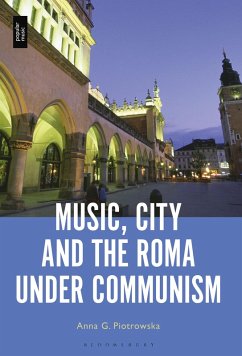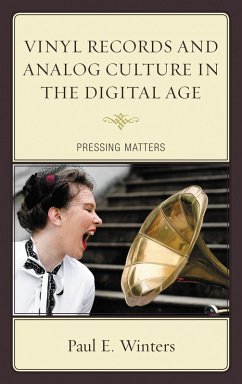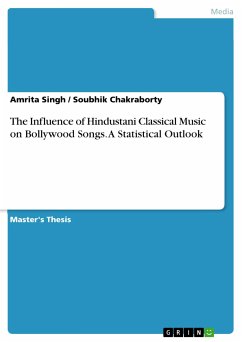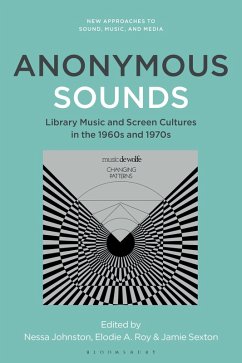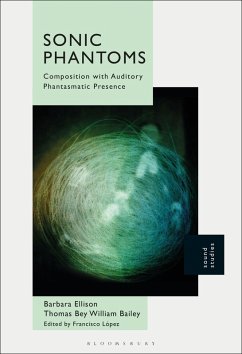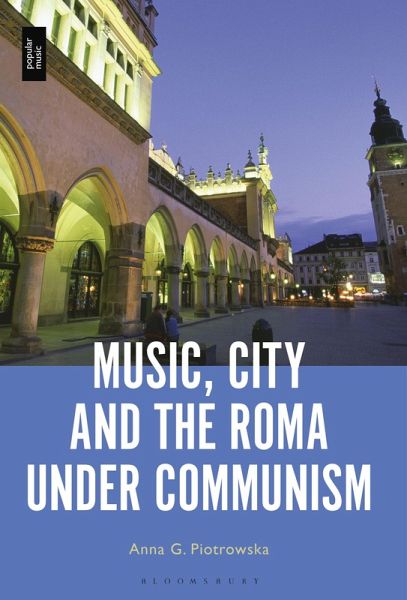
Music, City and the Roma under Communism (eBook, PDF)

PAYBACK Punkte
12 °P sammeln!
This book highlights the role of Romani musical presence in Central and Eastern Europe, especially from Krakow in the Communist period, and argues that music can and should be treated as one of the main points of relation between Roma and non-Roma. It discusses Romani performers and the complexity of their situation as conditioned by the political situations starkly affected by the Communist regime, and then by its fall. Against this backdrop, the book engages with musician Stefan Dymiter (known as Corroro) as the leader of his own street band: unwelcome in the public space by the authorities,...
This book highlights the role of Romani musical presence in Central and Eastern Europe, especially from Krakow in the Communist period, and argues that music can and should be treated as one of the main points of relation between Roma and non-Roma. It discusses Romani performers and the complexity of their situation as conditioned by the political situations starkly affected by the Communist regime, and then by its fall. Against this backdrop, the book engages with musician Stefan Dymiter (known as Corroro) as the leader of his own street band: unwelcome in the public space by the authorities, merely tolerated by others, but admired by many passers-by and respected by his peer Romain musicians and international music stars. It emphasizes the role of Romani musicians in Krakow in shaping the soundscape of the city while also demonstrating their collective and individual strategies to adapt to the new circumstances in terms of the preferred performative techniques, repertoire, and overall lifestyle.




